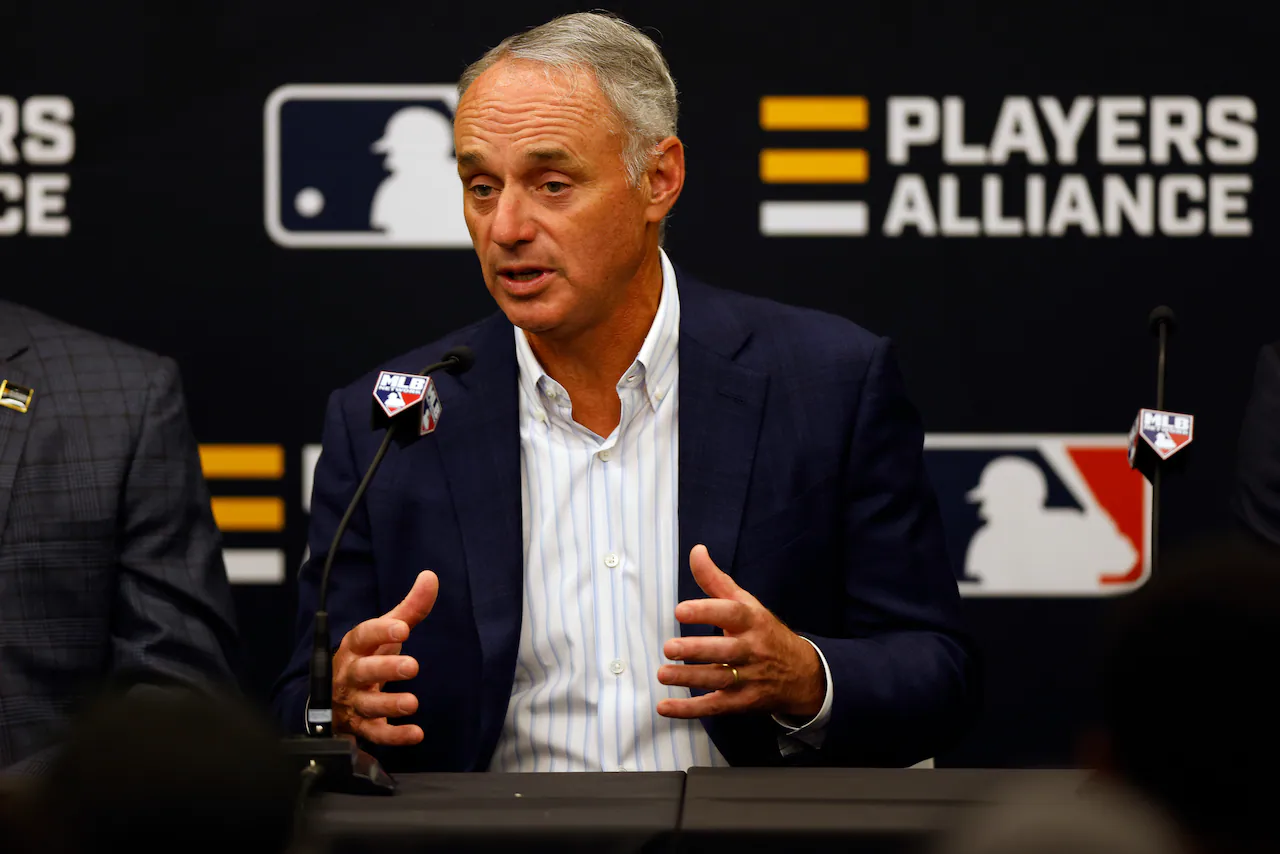
- Storylines Heading Into Cleveland Browns Training Camp - July 19, 2024
- June MLB Power Rankings - July 3, 2024
- May MLB Power Rankings - June 4, 2024
On Thursday, December 2, 2021, at 12:01 a.m, Major League Baseball announced that the league had locked out its players. This had come two minutes after the collective bargain agreement between MLB and its association had expired. Putting a stop to baseball for the time being.
The lockout marks the first time there’s been a work stoppage in the sport since the 1994-1995 strike. In that time, there was no baseball for 232 days and 948 games, including the playoffs and World Series. Also lost, $580 million in ownership revenue and $230 million in player salaries.
So now that the MLB is in a lockout, what does that entail? Will games be missed? How long will it last?
Let’s start with what comes with it.
First and foremost, free agency and trading has been frozen. Moves that were completed prior to the lockout, such as the Boston Red Sox trading outfielder Hunter Renfroe to the Milwaukee Brewers for outfielder Jackie Bradley Jr. and two prospects and the New York Mets signing pitcher Max Scherzer, are seen as done deals. However, situations where the deal has not been officially completed due to a hold up in a physical or some kind of dispute will be held up.
It also means that players who are available will have to wait out the lockout before they can sign. Players like shortstops Carlos Correa and Trevor Story, first baseman Freddie Freeman and third baseman Kris Bryant can’t negotiate with anyone at this time and will have to ride it out.
Next, it means that no communications can be made between teams and players on their major league roster. Because this is essentially a strike by the Players Association, there is a divide between the players and their respective teams.
Finally, the annual winter meetings will be cancelled. The meetings, which were supposed to start on Sunday, December 5th in Orlando won’t happen. This is the second straight year the event was cancelled after last year due to the Covid-19 pandemic.
The next question is will games be missed?
At this juncture, it’s possible but not certain. Spring training is scheduled to begin on February 15th (when pitchers and catchers arrive) giving the MLB and MLBPA have about two and a half months to negotiate. If negotiations don’t get anywhere by mid-to-late January, that’s when the threat of missing games will start to set in.
The final question is how long it will last, and that doesn’t seem to have an easy answer. As mentioned before, this work stoppage is a strike by the players over various issues, including money.
Baseball is a billion dollar business, seeing revenues in the $10 billion range prior to the Covid-19 pandemic where it hit $4 billion. In that time, the average salary for players went down five percent. Meaning, other than in 2020, the revenue rose and the average player salary went down.
Money isn’t the only issue, “tanking” has been a major issue as well. In most sports, teams “tank” in the hopes of getting a better draft pick for better talent but in baseball, there’s more to it.
In addition to a higher pick, teams with worse records also get a higher percentage share of the league’s revenue. It was done this way to ensure that teams that weren’t doing well and generated less fans would be able to field a competitive team. Of course over time, it’s been taken advantage of and have continued to struggle to gain revenue.
Other issues including making the designated hitter a position in both leagues, pitch clock and changes to the playoffs are also topics of discussion that are on the table. Simply put, there’s congestion that needs to be settled before an agreement can be made.
If both sides can cut through the rough, there’s a slight chance that they could get a new collective bargaining agreement deal done before the season. It’s not likely but it’s possible that the season could start on time.
So now what?
Well we wait in the cue. Baseball is stuck in a holding pattern for the time being and there’s nothing that the fans can do. Hopefully a resolution can be found but until then, welcome to the lockout.




